Water, Sanitation and Hygiene
DevWorks works with all stakeholders to improve access to clean water and sanitation. We help multiple levels of government improve water and sanitation services. We support businesses in this sector to expand options for consumers. And we promote community adoption of good hygiene practices.
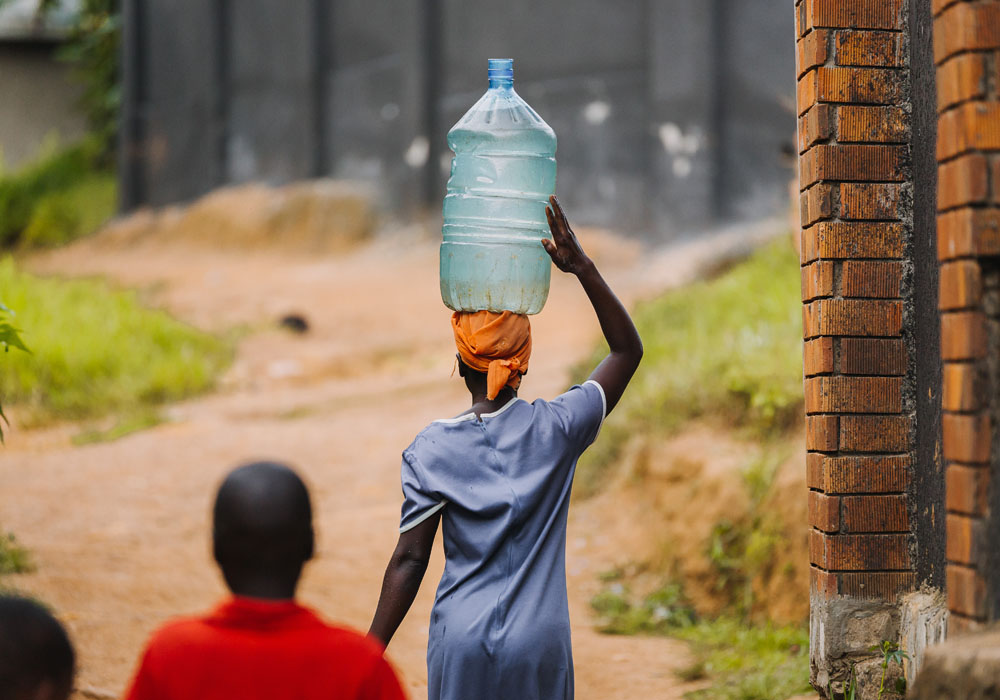
Supporting fair, universal access to water
DevWorks supports Sustainable Development Goal 6 to achieve universal and equitable access to safe and affordable drinking water for all by 2030. Significant challenges remain in ensuring sustainable water supply. DevWorks addresses these challenges by engaging local and national governments, communities, and the private sector. Working from the end goal of sustainable water supply, we work as facilitators to help design appropriate water supply schemes and management structures.
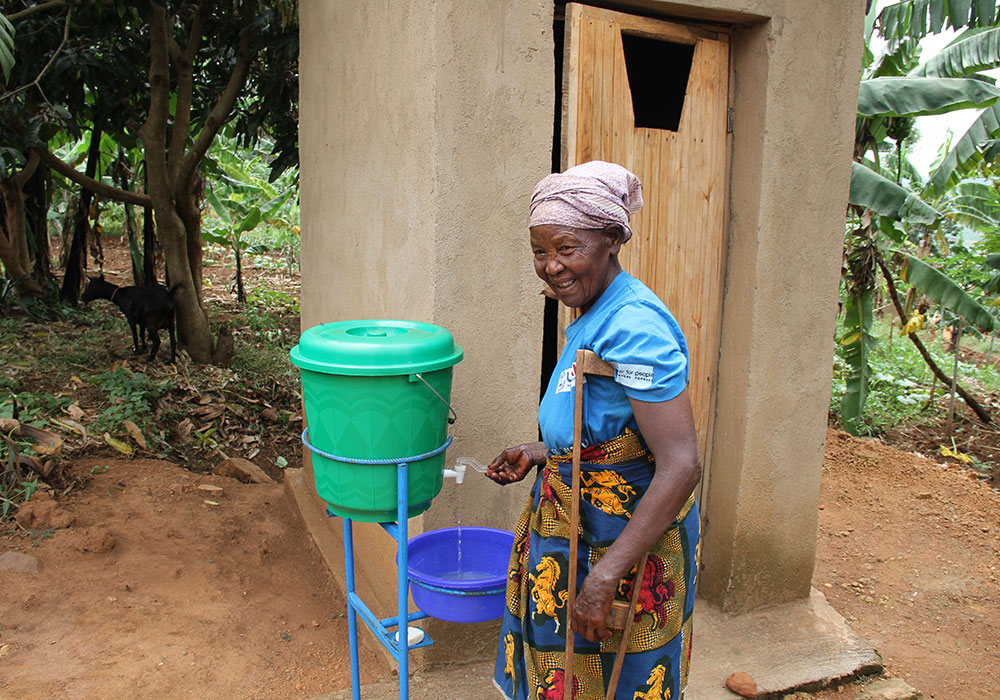
Improving sanitation service delivery
DevWorks boosts government and private sector capacity to build, run, and maintain household, community, and institutional sanitation services all along the sanitation supply chain. To help local governments improve sanitation, DevWorks focuses on building government capacity in multiple areas, including leadership and advocacy, planning and budgeting, monitoring and data use, financing and stewardship of resources, among others. Our goal is building public-private partnerships and business models that can be replicated and sustained to make sure demands are met.

Promoting hygiene behavior change
Good hygiene improves health outcomes. DevWorks promotes behavior change to increase demand for hygiene products and services, such as water storage containers, sanitation facilities, and hand soap in homes, public spaces, and institutions. DevWorks designs and implements evidence-based behavior change communication (BCC) hygiene campaigns to change behaviors across entire populations, with a focus on training relevant front-line providers, such as schoolteachers, midwives, and health facility workers. We create one-on-one, tailored interactions that directly address individual biases and barriers to adopting good hygiene practices, including any barriers specific to disadvantaged groups. On a broader scale, we create and run national campaigns on the importance of hygiene practices such as hand washing with soap.
WASH Projects
Uganda Sanitation for Health Activity (USHA)
USAID | Uganda | 2018–2023
USHA implements evidence-based social and behavior change strategies to understand sanitation preferences and develop the most appropriate approach to improving targeted population’s WASH behavior. USHA works in close coordination with complementary development projects within USAID and the Ugandan WASH sector. It aligns with the Government of Uganda’s long-term development priorities, district level development agendas and the needs of communities. Through a series of interventions at district, community and household-levels, USHA seeks to achieve three interdependent outputs.
- Increased household access to sanitation and water services.
- Key hygiene behaviors at home, school, and health facilities adopted and expanded.
- Strengthened district water and sanitation governance for sustainable services.
Led by Tetra Tech, the USHA consortium includes DevWorks, as well as BRAC Uganda, FSG, and Sanitation Solutions Group (SSG). DevWorks leads key behavior change activities under output 2; and district level governance activities under output 3 of the project.
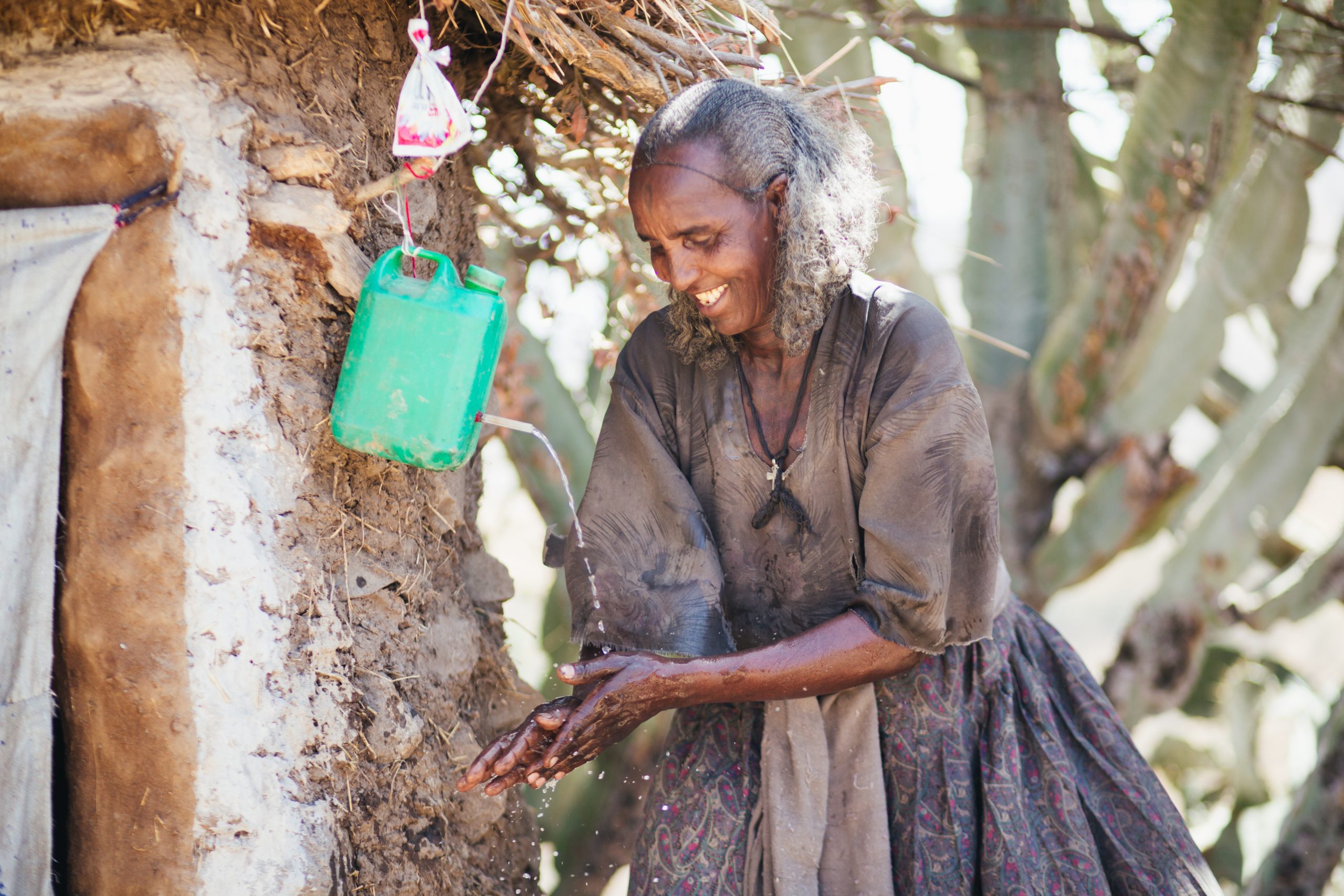
Transform WASH
USAID | Ethiopia | 2017–2021
USAID TRANSFORM WASH aims to reduce preventable deaths and illnesses due to diarrheal diseases in Ethiopia, particularly among children under five, by increasing access to and sustained use of affordable, quality WASH products and services, with a substantial focus on sanitation. The project serves as a market facilitator, building up demand for improved sanitation among households, and developing the capacity of private sectors companies on the supply-side to meet this new demand.
In a consortium led by Population Services International (PSI), DevWorks focuses on key activities that create an enabling environment for the emergence of a sustainable market for WASH products and services. To this end, DevWorks’ leads capacity building activities for the sub-national government, collaborating with the Government of Ethiopia (GoE) to tailor a package of support based on their needs in WASH and One WASH National Program (OWNP) planning, budgeting, coordination, implementation, monitoring, and reporting. DevWorks is also testing service delivery approaches for end of value-chain services, such as fecal sludge management and re-use, and strengthening supply-side financing opportunities through finance institutions.
Indonesia Urban Sanitation and Hygiene Plus (IUWASH Plus) Project
USAID | Indonesia | 2016–2021
The Indonesia Urban Sanitation and Hygiene Plus (IUWASH Plus) Project, implemented by a consortium led by DAI, is designed to assist the Government of Indonesia in increasing access to water supply and sanitation services, as well as improving key hygiene behaviors among urban poor and vulnerable populations. IUWASH Plus works with governmental and donor agencies, the private sector, NGOs, communities and other stakeholders to achieve an increase of one million people in urban areas with access to improved water supply and an increase of 500,000 people in urban areas with access to an improved sanitation facility, all of whom are from the poorest 40% of the population. DevWorks specifically contributes to facilitating a robust market for household WASH products and services, including R&D for sanitation products and services; mentoring, training and incubation of sanitation, hygiene and water storage and treatment service providers; and facilitating development of viable market-based business models for these products and services. We also organize workshops, trainings and events with the government of Indonesia and work to share lessons learned and successful approaches for scale up and replication, through the development of toolkits, manuals and other resources.
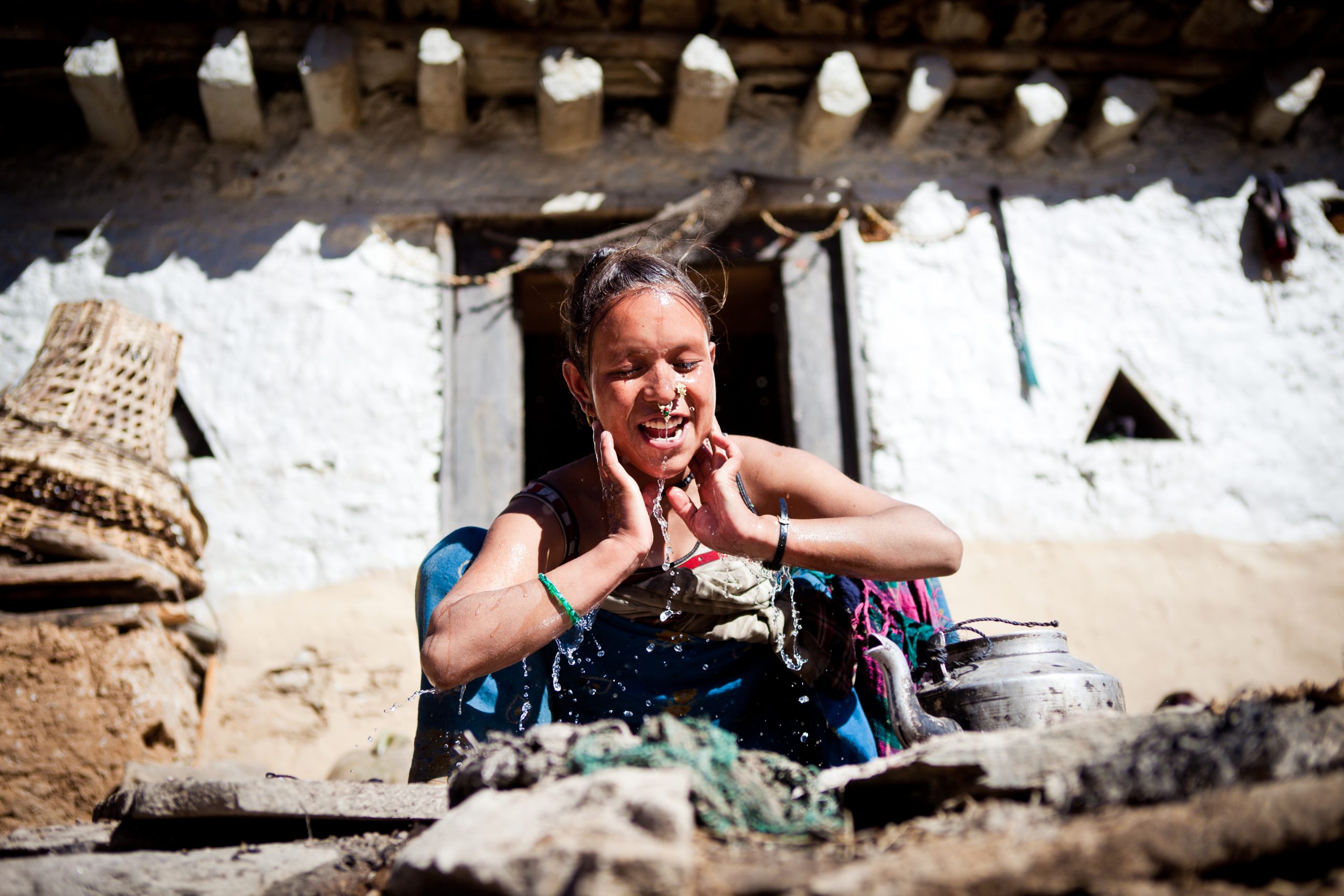
Health and Hygiene Activity “Swachchhata”
USAID | Nepal | 2016–2024
USAID’s Health and Hygiene Activity (or “Swachchhata”, which means cleanliness in Nepali) supported the Government of Nepal to improve health service delivery and hygiene at healthcare facilities for communities across Karnali and Lumbini provinces in Nepal. Swachchhata supported 181 healthcare facilities in constructing or rehabilitating piped water supply systems, gender and disability-friendly toilets, and handwashing stations; 61 of these healthcare facilities in installing solar power systems; and 80 of these healthcare facilities in installing placenta pits, burial pits and/or composting bins for improved on-site healthcare waste management. The Activity also increased the capacity of health workers in adopting infection prevention protocols and tools, and in promoting key WASH messages through client counseling, female community health volunteers and behavior change communication campaigns.
USAID Nepal Health and Hygiene Activity Snapshot
Rwanda Rural Sanitation Activity “Isuku Iwacu”
USAID | Rwanda | 2016–2020
Isuku Iwacu works to improve access to and encourage correct, consistent use of household sanitation and hygiene facilities to support the GOR’s work in sanitation to reduce childhood stunting by focusing on district-wide, private sector driven household sanitation and hygiene interventions; and on district-and national-level capacity development. Isuku Iwacu aims to do so by focusing on 3 major outcomes:
- Demand for sanitation products and services increased
- Supply and availability of sanitation products and services in the private sector improved
- Governance for sustained access to sanitation and hygiene products and services improved
Key activities from the project include develop and disseminate key behavior change messages through various mediums including radio spot and live talk shows, theatrical shows, door to door outreach through community health club members and facilitators, and other opportunities as identified; train CHC facilitators and local civil society organizations in promoting sanitation and hygiene, mobilize communities to construct basic latrines, and in ODF process; and enhance target population’s financial options to access sanitation products by designing and facilitating the issuance of sanitation loans through local MFIs and SACCOs in eight target districts.
Success Stories
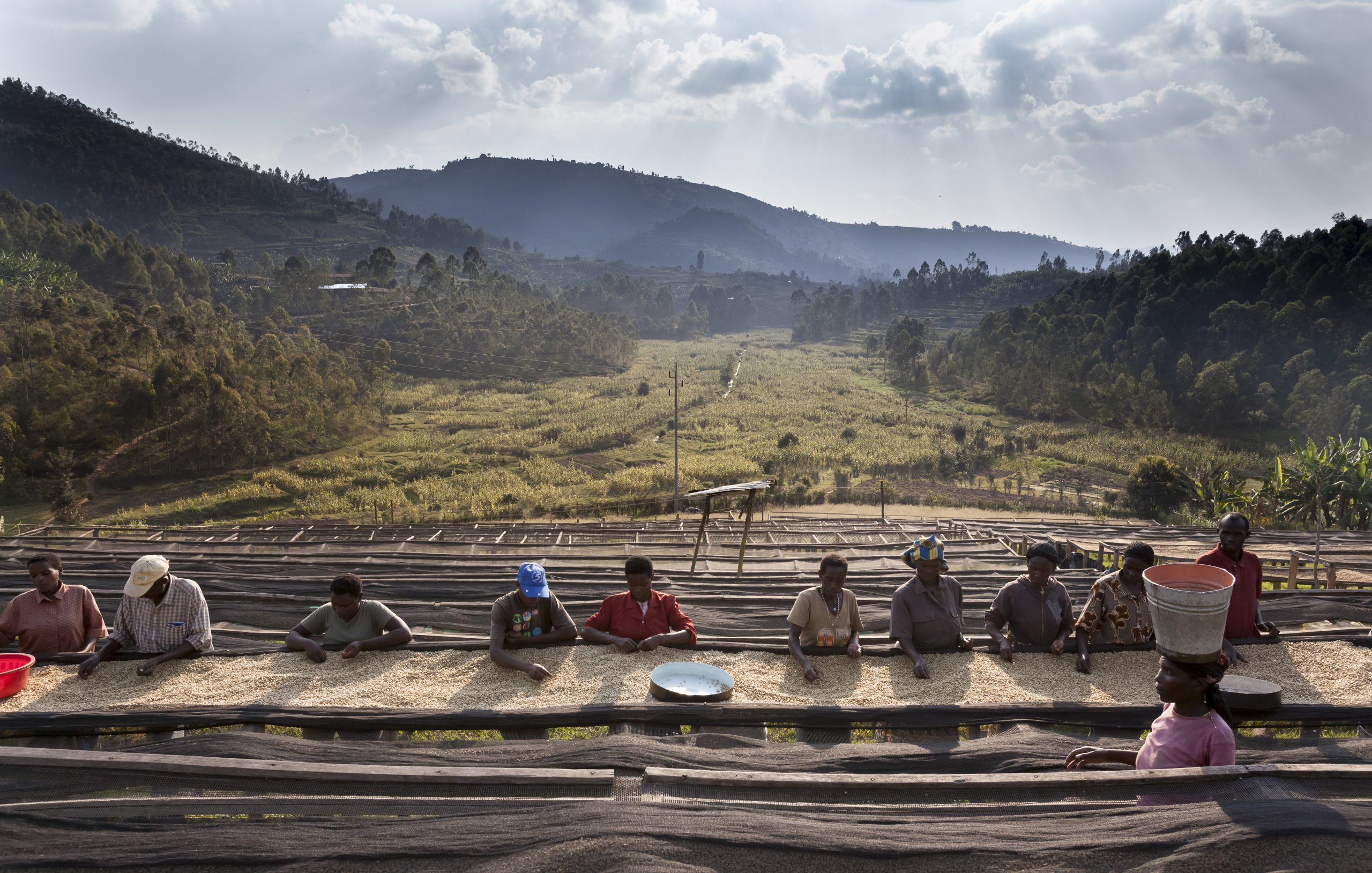
Gikuriro
USAID | Rwanda | 2015–2020
Formerly known as Integrated Nutrition and Water, Sanitation and Hygiene Activity (INWA), Gikuriro aims to improve the nutritional status of women of reproductive age and children under five years of ages with an emphasis on the 1,000 days window of opportunity from pregnancy until the child’s second birthday. In this activity, led by Catholic Relief Services (CRS), DevWorks supports demand creation and supply chain development to support increased access to water supply, sanitation and hygiene services.
The strategy behind Gikuriro is to reinforce the Rwandan government’s nutrition and WASH efforts, to mobilize civil society and the private sector to accelerate progress toward the national goal of eliminating malnutrition. Malnutrition is a key priority in Rwanda where an estimated 22% of child deaths between 2008 and 2012 were directly associated with under-nutrition. This due to inter-related factors including insufficient knowledge and practice of key nutrition and WASH principles, small parcels of farmland and low household income.
Kenya Integrated WASH (KIWASH) Program
USAID | Kenya | 2015–2020
The Kenya Integrated Water, Sanitation and Hygiene (KIWASH) is a five year project of the US Agency for International Development, led by DAI, with the goal of improving the lives and health of Kenyan citizens in nine counties through development and management of sustainable water, sanitation and hygiene services. KIWASH aims to accelerate and sustain improvements in water and sanitation access and services in nine target counties and improve complementary hygiene behaviors. DevWorks’ role in the project is to scale up community-led total sanitation (CLTS) activities in selected villages; promote appropriate low-cost sanitation products and services, including the SATO Pan and SAFI Latrine; strengthen the rural sanitation supply chain by conducting market research and trainings on providing appropriate sanitation facility options among sanitation supply actors; and carry out community-based hygiene promotion through existing community structures and programs. KIWASH looks at water service providers through the technical, human resources, and financial lenses to identify challenges and help develop solutions to improve supply. DevWorks works closely with the Department of Public Health in each targeted county to reinforce government regulations and oversight to keep these structures well maintained
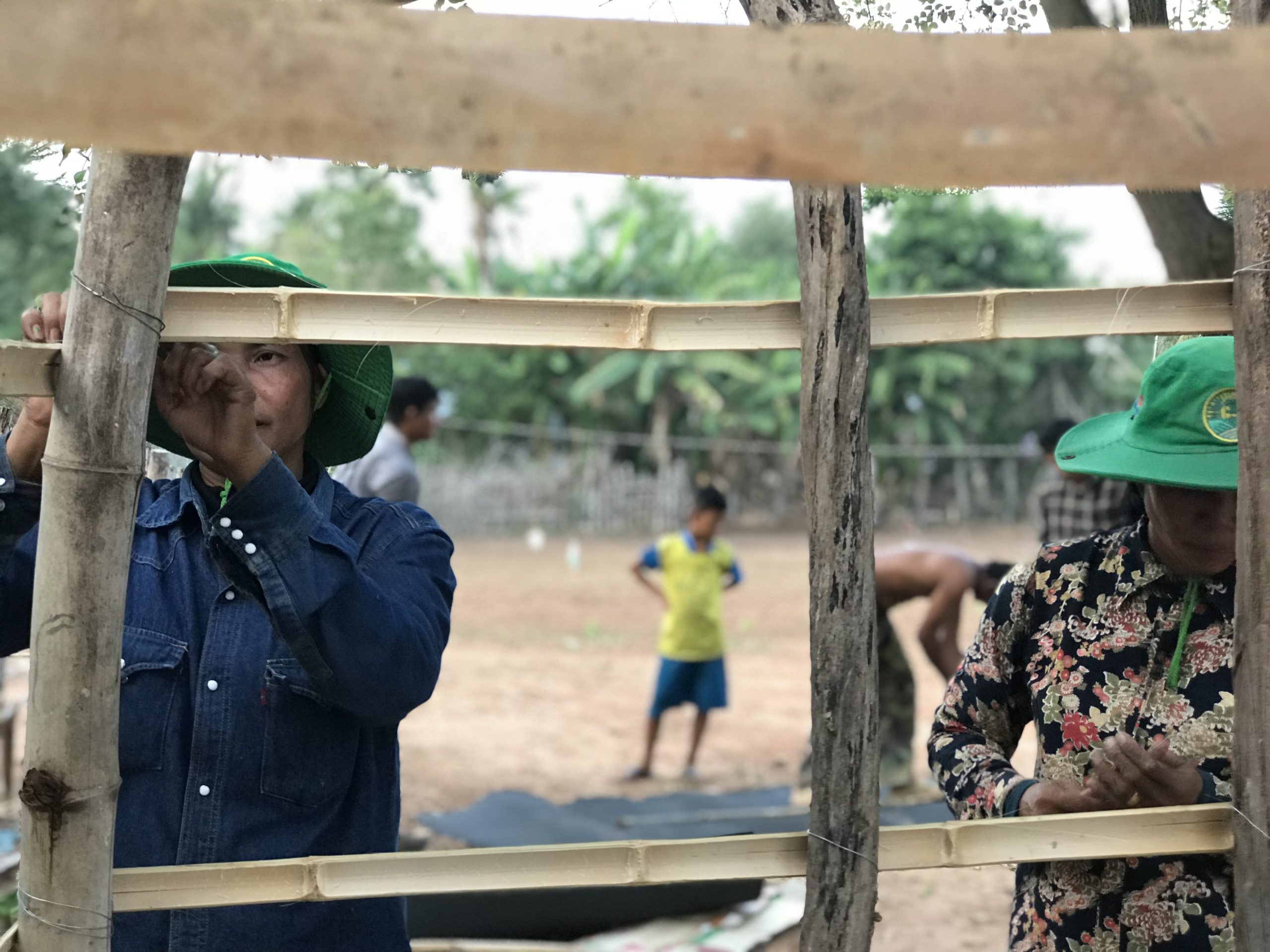
Nourish
USAID | Cambodia | 2014–2020
NOURISH aims to reduce stunting targeting pregnant women, mothers and child below 2 years through improving their nutrition and hygiene situation in 565 villages across three provinces in Cambodia: Pursat, Battambang and Siem Reap. In a consortium led by Save the Children, which includes the Manoff Group, local NGOs and district/provincial and national government, DevWorks, implements activities under objectives 2 and 3 to improve access to safe drinking water at the point of use and improve sanitation and hygiene. DevWorks develops the capacity of local stakeholders to create demand for improved sanitation at the village-level, supports the private sector to promote a market-based approach for improved supply chains, fosters promotion of water filters and latrines by the private sector, and provides material support vulnerable households by supporting building of improved latrines and access to safe drinking water.
The project takes an integrated approach to addressing stunting with interventions across nutrition, WASH and agriculture through four complementary strategic objectives:
- Improve community delivery platforms to support improved nutrition.
- Create demand for health, WASH, and agriculture practices, services, and products.
- Expand supply of agriculture and WASH products using the private sector.
- Enhance capacity of government and civil society for integrated nutrition.
Project for Improved Nutrition through Community Action (PNH)
USAID | Mali | 2013–2019
The Project for Improved Nutrition through Community Action (PNH) project, implemented by a consortium led by Save the Children, aimed to improve the nutritional status of pregnant and lactating women by promoting adoption of sanitation and hygiene practices, increasing production and accessibility of nutrient rich food, and improving the delivery of nutrition service to address acute malnutrition.
DevWorks primarily implemented the agriculture component of the project, where the project supported households in adopting sustainable and nutrition-sensitive farming practices. Through this intervention, the project aimed to encourage women in target villages to adopt sustainable farming techniques to help achieve food and nutrition security in order to increase the number of people who consume diverse and nutrient-rich meals.
Under the WASH component of the project, DevWorks supported in providing capacity building support to the WASH actors in target villages to support he overall WASH outcome of the Mali government. Thus, the nutrient-rich crops were produced in 2000 individual plots of women, 30 collective and individual vegetable sites, 40 field-schools through the application of the family-farm advisory approach led by two local organizations: Faamuyaso and Yiriwasira.
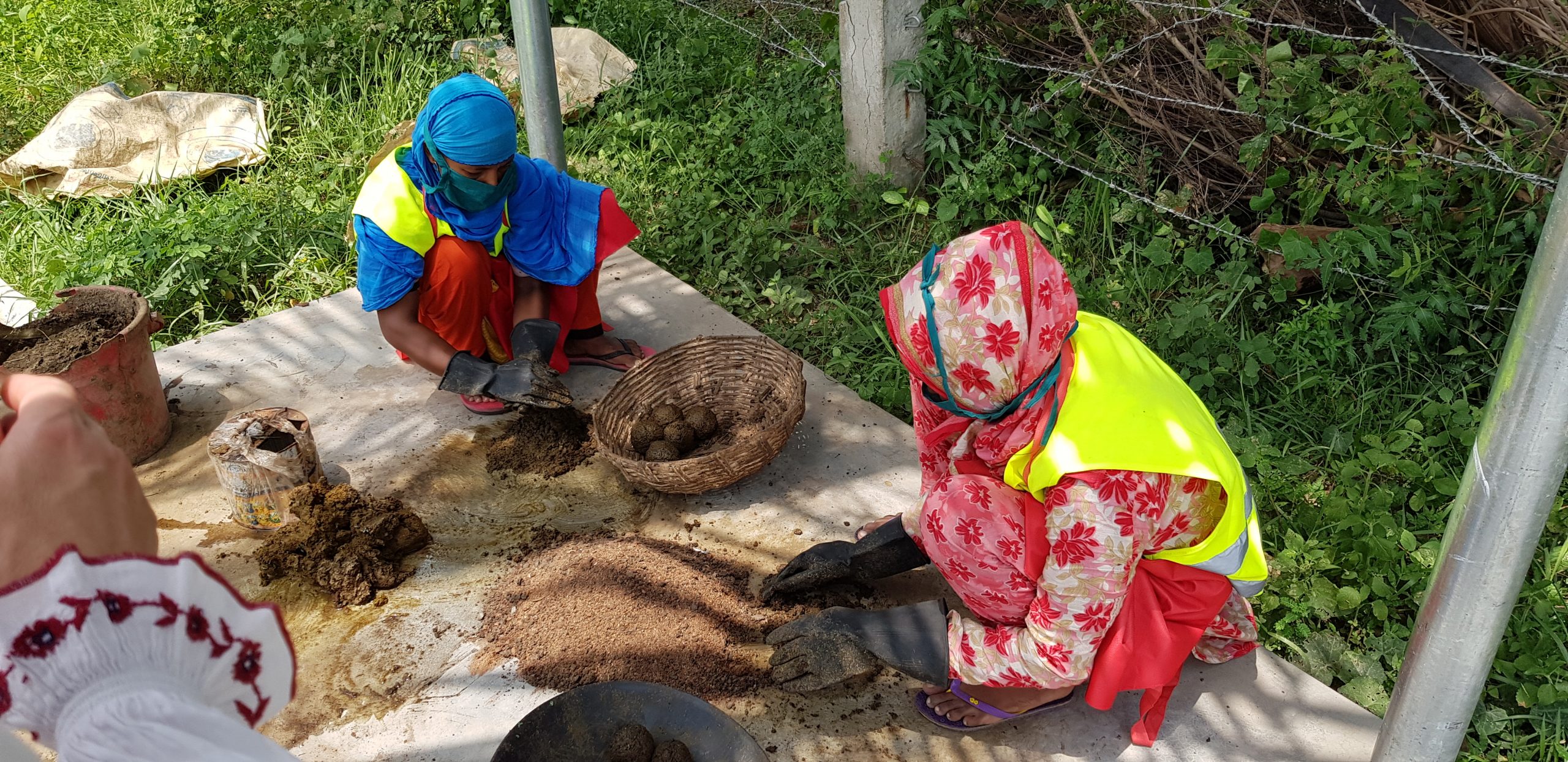
Bill & Melinda Gates Foundation’s Fecal Sludge Management (FSM)
USAID | Bangladesh | 2013–2017
The overall goal of the Bill & Melinda Gates Foundation’s Fecal Sludge Management (FSM) project was to demonstrate financially viable and sustainable FSM solutions for cities and towns in Bangladesh. It was expected that, as a direct result of the project, more than one million people in the 3 target cities (Khulna, Kushita, and Jhenaidah) would benefit from an improved living environment and gain access to safe fecal sludge management services. Moreover, considering the prevalence of unsafe sanitary facilities, the project supported the accessibility to improved sanitation facilities for 250,000 people. The project also aimed to make hygienic fecal sludge emptying services accessible and affordable to the urban poor through targeted interventions that seek to make the sanitation sector more sustainable, competitive, and dynamic.